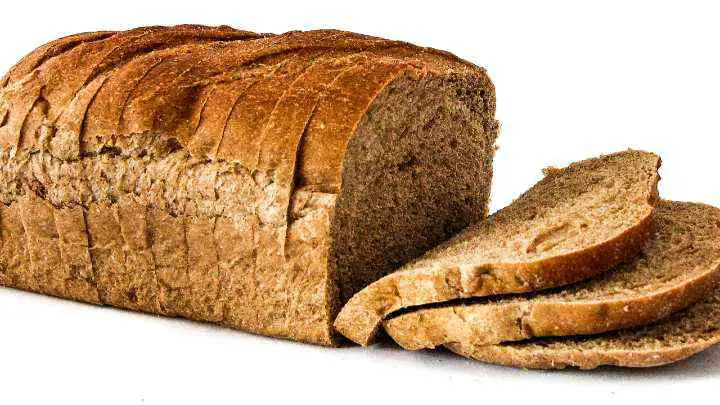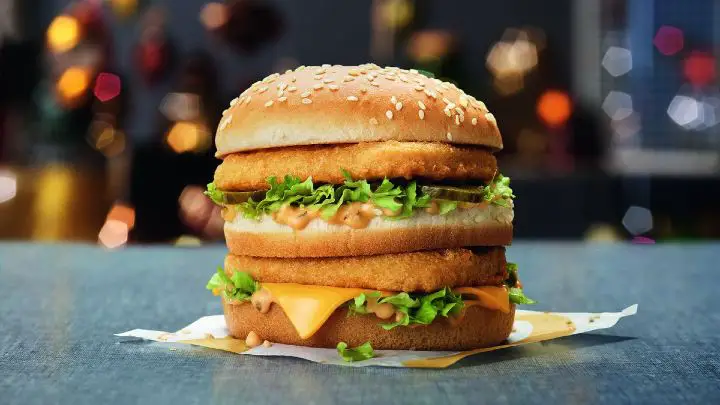With bread being a regular food in most homes, you are bound to wonder exactly how much bread is too much for consumption.
Exceeding 6-8 slices of white bread and 12 slices of whole wheat bread could pose health risks.
This article enlightens you on just how much bread is recommended for daily consumption and when it becomes too much.
How much bread is too much per day?
Daily consumption of over 6 slices of white bread which is made of refined bread flour is excessive.
This is because white bread barely contains nutrients and is loaded with gluten and carbs which can spike your blood sugar.
However, you can eat up to 12 slices of whole wheat bread without worries as it comes loaded with nutrients and dietary fiber.
Whole wheat bread also would not readily spike blood sugar levels and will keep you satiated for a longer period.
SEE: Whole Wheat Flour vs Bread Flour: Learn Their Differences
How much bread is too much per week?
Exceeding two loaves of bread per week is too much and not generally advisable especially if it is made with refined bread flour.
Should you eat bread every day?
No, the daily consumption of food loaded with simple carbohydrates like white bread may pose serious health risks.
Excess consumption of white bread can result in heart disease, diabetes, and weight gain.
Indigestion and bloating can also result when too much bread is consumed by someone with an imbalanced digestive system.
SEE: Popular Types Of Bread You Should Know
What is the recommended daily intake of bread?
The recommended daily intake of white bread made with refined flour ranges from three to four slices.
How much bread is too much for a diabetic?
If you’re diabetic, exceeding two medium slices of white flour bread can pose a risk. Generally, diabetics should not even consume white flour bread and should opt for whole wheat bread.
SEE: Can Diabetics Eat Cornbread? Find Out Here
How much bread is healthy?
Four to six slices of whole grain bread and about three slices of refined white bread are healthy.
Be sure to consider your carb intake from other meals as that may also affect your total calorie intake.
SEE: What Squaw Bread Is and If It Is a Healthy Option
What happens when you eat too much bread?
Eating too much bread, especially white bread, can put you at a higher risk of having type 2 diabetes, and heart diseases.
It can also cause resistance to insulin and higher inflammation levels in your body. This is because white bread use refined white flours which contain little or no nutrients.
Hence, when you consume white bread, you’re never really satisfied and only succeed in spiking your blood sugar.
Blood sugar and insulin spikes will only increase your hunger and tempt you to eat more bread, thus promoting the development of diabetes.
SEE: Delicious Things To Eat With Sourdough Bread
FAQs
Is too much bread fattening?
Excessive consumption of bread without burning calories can lead to weight gain. That is because each whole grain bread and white bread slice contains about 76-78 calories.
How much bread is too much for a dog?
Feeding a whole slice of bread to your dog is too much. That is because when dogs eat excessive amounts of bread, they can suffer bloating which can cause serious complications. Limit your dog’s bread intake to just crusts as a treat.
How much bread can you eat to lose weight?
Eating less than 8 slices of whole grain bread is a great weight management meal option if you wish to lose weight.
Conclusion
While whole grain loaf can be a great meal option for people seeking to lose weight, most people tend to forget that carbs can come from other meals.
When using bread as a meal for weight management, be sure to put into account your carbohydrate intake from other meals as well.
Also, take whole grain bread in place of white bread as it contains more health and nutritional benefits.
Find out how to best preserve bread as well as the different types of whole grain bread. These types of loaves will not only promote healthy living but will also keep you satiated for longer periods.
I hope you found this article helpful. Thanks for reading.







